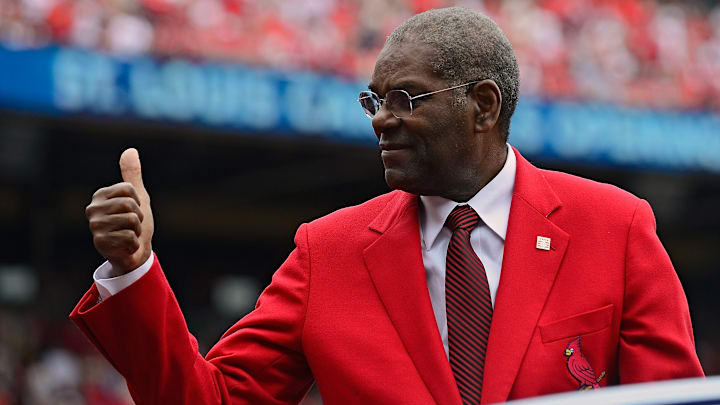Bob Gibson
Bob Gibson, often referred to as "Gibby" is the greatest Cardinal pitcher of all time. He's best known for his legendary 1968 season, but that was just a highlight in an incredible 17-season career, all of which was spent in St. Louis. Career accolades include nine all-star selections, two World Series titles, two World Series MVPs, an ERA title, an MVP, and two Cy Young Awards. Gibson, who took tremendous pride in his defense, also racked up nine gold gloves during his career. He was voted into the Hall of Fame in 1981, his first year on the ballot.
As previously mentioned, The Hall of Famer captured two Cy Young Awards, though he probably deserved at least one more. During his incredible run in 1968, Gibson pitched to a microscopic 1.12 ERA across 304.2 innings. of his 34 starts, he went the distance in 28 of them, 13 of which were shutouts. According to ERA+, an advanced metric that adjusts for park environments, Gibson was 158% better than the average pitcher. His 268 strikeouts also led the league. Simply put, this is arguably the greatest season by any pitcher, ever. Gibson brought home both the MVP award and the Cy Young Award that season.
He won his second Cy Young Award in 1970 when he led the National League in wins. It was the fifth time in the last six seasons that Gibson had eclipsed 20 wins, a remarkable feat. Cy Young voting worked differently during Gibson's career, and not as many pitchers received votes in a given year. If they had, Gibson would likely have finished in the top five in several other seasons, including in 1969 when he had a legitimate case to win the award. Gibson did record a lower ERA (2.18) than that year's winner, Tom Seaver. Regardless, his career was full of incredible moments and accomplishments.
